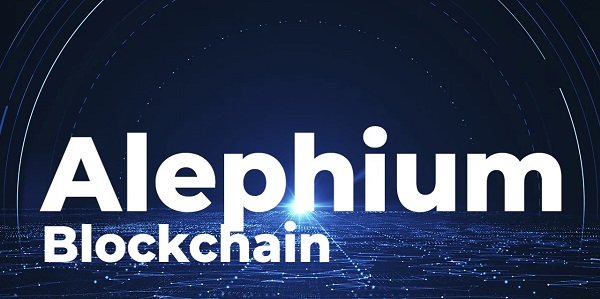Alephium: Redefining Scalability in Blockchain with ALPH Token

In the fast-evolving world of blockchain technology, scalability has been a persistent challenge. As the demand for faster and more efficient blockchain networks grows, projects that can address scalability concerns stand out from the crowd. One such project that is making waves in the blockchain space is Alephium, with its native ALPH token leading the way in redefining scalability. http://tesler.software/ which is an Online trading platform.
What is Alephium?
Alephium is a groundbreaking blockchain platform designed to solve the scalability trilemma – the longstanding trade-off between security, decentralization, and scalability in blockchain networks. It was founded by a team of visionary developers who recognized the need for a high-performance blockchain that could handle a vast number of transactions without compromising on security or decentralization.
The core technology behind Alephium is its unique consensus mechanism called Proof-of-Aleph (PoA). Unlike traditional Proof-of-Work (PoW) or Proof-of-Stake (PoS) mechanisms, PoA allows for parallel transaction processing, making it highly scalable. It combines the benefits of PoW and PoS, ensuring the network remains secure and decentralized while achieving exceptional transaction throughput.
Redefining Scalability
Alephium’s approach to scalability is truly revolutionary. While many blockchain projects claim to address scalability, few have succeeded in achieving significant results. Alephium’s PoA consensus enables the network to process transactions in parallel, leading to a linear increase in transaction throughput as more nodes join the network.
This breakthrough technology allows Alephium to handle thousands of transactions per second (TPS), far surpassing the capabilities of traditional blockchain networks. As a result, it is well-suited for use cases requiring rapid and high-volume transactions, such as decentralized applications (dApps), gaming platforms, and financial services.
The ALPH Token: Powering the Alephium Ecosystem
At the heart of Alephium’s blockchain is its native utility token, ALPH. The ALPH token plays a pivotal role in the network’s governance, incentivization, and overall ecosystem dynamics.
Governance
ALPH token holders have the power to participate in the decision-making process for protocol upgrades and other vital governance matters. This democratic approach ensures that the community has a say in the evolution of the network, promoting inclusivity and decentralization.
Incentivization
The ALPH token also serves as a means of incentivizing node operators to maintain and secure the network. Nodes that contribute to the network’s operation and security are rewarded with ALPH tokens, creating a robust and self-sustaining ecosystem.
Transaction Fees
Like many blockchain networks, Alephium employs a fee system to prioritize transactions. However, the fees on Alephium are designed to be reasonable and competitive, making it an attractive choice for users and developers looking for cost-effective solutions.
Staking
Staking is a crucial feature of the Alephium network. Users can stake their ALPH tokens to participate in block validation and earn staking rewards. This process enhances the security of the network while offering users a way to earn passive income on their holdings.
Alephium’s Use Cases
The scalability and high transaction throughput of Alephium make it an ideal choice for various real-world use cases.
Decentralized Applications (dApps)
Decentralized applications have been gaining traction across various industries, from finance to supply chain management. However, scalability issues have hindered the widespread adoption of dApps on many blockchain networks. Alephium’s PoA consensus offers the necessary scalability to support dApps with thousands of users, opening the door to innovative and highly functional applications.
Gaming Platforms
The gaming industry is no stranger to blockchain technology, as it offers unique opportunities for ownership, item trading, and in-game economies. However, for blockchain gaming to become mainstream, it must overcome scalability challenges. Alephium’s TPS capabilities make it a compelling choice for gaming platforms seeking to provide a seamless experience to their users.
Financial Services
Speed and efficiency are crucial in the financial sector. Traditional financial systems often struggle to process a high volume of transactions quickly. Alephium’s blockchain technology, with its remarkable scalability, has the potential to revolutionize the financial services industry by enabling near-instantaneous settlements, cross-border remittances, and more.
Supply Chain Management
Supply chain management requires a reliable and transparent system to track products and ensure authenticity. By leveraging Alephium’s blockchain, supply chain solutions can become more secure, efficient, and resistant to counterfeiting.
Security and Decentralization
While scalability is Alephium’s main focus, it does not compromise on security and decentralization. The PoA consensus ensures that the network remains secure, and the participation of numerous nodes maintains its decentralized nature. Furthermore, the governance model, driven by ALPH token holders, fosters community involvement and keeps the network accountable.
Conclusion
Alephium’s ALPH token, with its innovative Proof-of-Aleph consensus mechanism, is revolutionizing the way we perceive scalability in blockchain networks. By enabling parallel transaction processing, Alephium achieves unmatched transaction throughput without compromising on security and decentralization. This breakthrough technology opens up new possibilities for various industries, from decentralized applications and gaming platforms to financial services and supply chain management.




